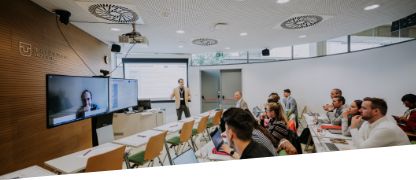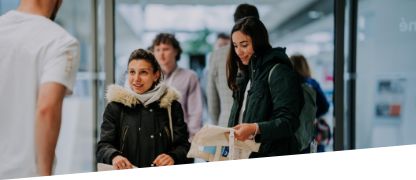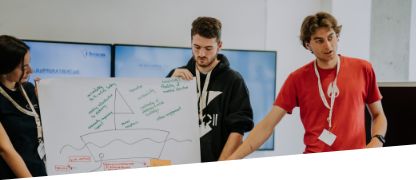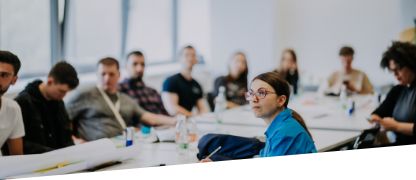Intercultural communication skills at the centre of the Ulysseus BIP on Multilingualism and Intercultural Competences
From June 3-7, Haaga-Helia University hosted a successful week-long program in Helsinki, enhancing intercultural communication skills for 26 non-academic staff from partner universities through interactive workshops and cultural activities. The event received high praise, underscoring the importance of intercultural competence in today’s globalized world.
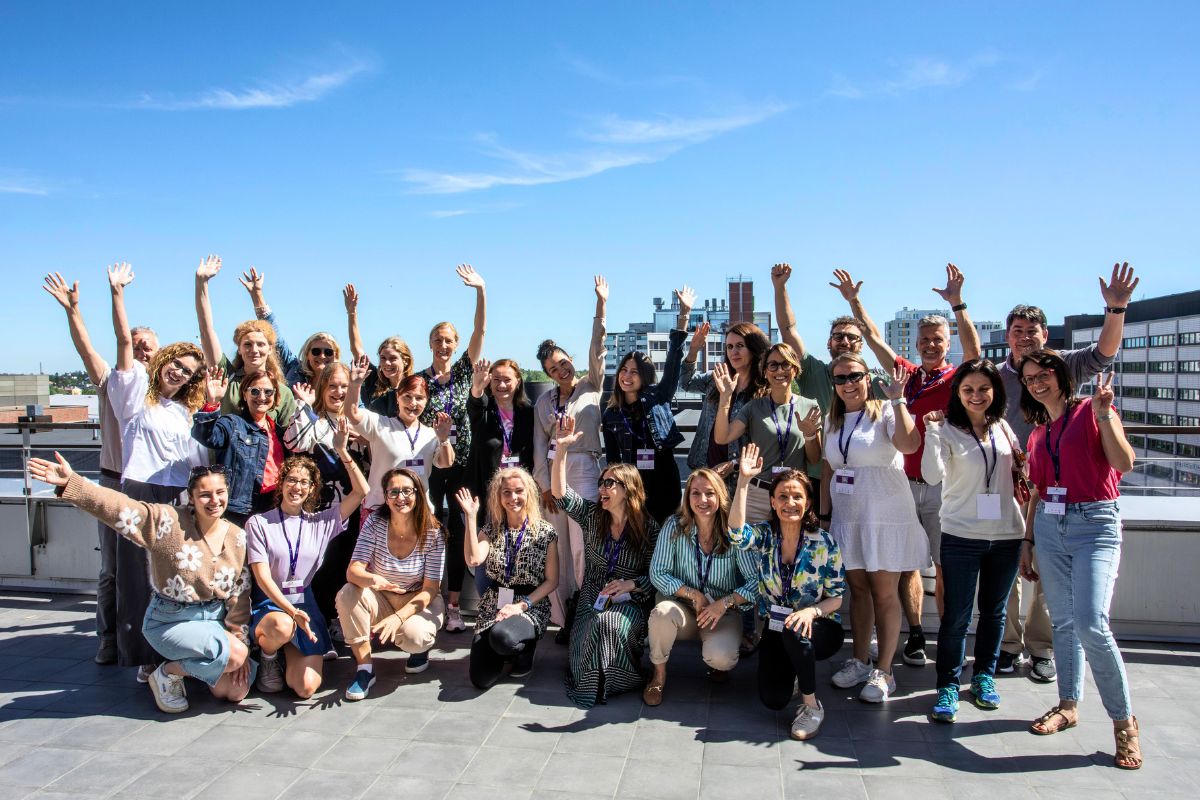
From 3-7 June Haaga-Helia University of Applied Sciences successfully hosted in Finland a week-long program on multilingualism and intercultural competences. The event brought together 26 non-academic staff members from partner universities to enhance their intercultural communication skills. Through a series of interactive workshops, cultural presentations, and tandem language learning sessions, participants gained a deeper understanding of diverse cultures and developed essential skills for effective cross-cultural communication. This activity culminated in high praise from participants, highlighting the importance of fostering intercultural competence in today’s globalized world.
On the first day, participants formed international groups through team building activities, learned more about Ulysseus European University and finally worked together on a virtual platform to discuss intercultural competences, methods, skills, and multilingualism. This session aimed to collect initial ideas and participants’ perceptions of the week’s topics. As a pre-assignment, the participants were given the task of preparing presentations about their universities presented at the end of the first day.
The second day began with a deep-dive to Finnish culture followed by cultural presentations by the participants, who introduced their home countries and cultures. They shared insights into cultural practices, societal norms, values and education systems, highlighting both differences and similarities. Discussions on stereotypes and equality were integral, as participants examined common cultural stereotypes and ongoing efforts toward achieving equality. Later in the afternoon participants engaged in tandem language learning, pairing up to teach each other their respective languages. This approach facilitated language learning and deepened cultural exchange, covering six alliance languages: Spanish, Italian, French, Slovak, Finnish, and Montenegrin. Participants learned basic phrases, improved their language skills, and gained insights into the cultural contexts of these languages, fostering mutual learning and respect. The evening ended in a joyful joint dinner held in the city center of Helsinki.
Interactive Workshops and Simulations
Interactive workshops and simulations formed the core of the BIP, providing hands-on experience in intercultural communication. Dr. Kevin Gore, Senior Lecturer at Haaga-Helia, led theory presentations as well as simulations on non-verbal communication, emphasizing body language and gestures’ importance in conveying meaning across cultures. These activities underscored the significance of non-verbal communication and taught participants to be mindful of these aspects in their interactions.
At Haaga-Helia’s Porvoo Campus, Dr. Gore conducted a session on defining culture and its components. This workshop helped participants understand the complex nature of culture, including how cultural norms shape behavior and communication through role-playing activities. Workshops on cultural intelligence and managing intercultural conflict provided tools for recognizing and adapting to cultural differences and strategies for resolving misunderstandings and conflicts.
Practical Applications
The BIP emphasized practical applications of intercultural competences through various activities:
- Team Building and Identity: Initial team-building exercises set the tone for collaborative learning, while sessions on identity explored how personal and cultural identities influence interactions and perceptions.
- Communication Skills: Workshops focused on both verbal and non-verbal communication skills, essential for effective interaction in multicultural environments. Participants learned techniques for clear and respectful communication, and they also gave their own presentations, which they had prepared before attending the BIP
- Simulations and Real-World Scenarios: Through role-playing and simulations, participants practiced navigating real-world scenarios requiring intercultural competence, providing a safe space to experiment with communication strategies and receive feedback.
Reflection and Feedback
The intensive week concluded with a reflection and feedback session, where participants shared their experiences and insights, reflecting on their initial definitions of the topics discussed at the beginning of the week. Feeedback from the participants was extremely positive and the overall opinion of the programme reached the maximum grade from all the participants emphasizing the great team spirit and organisation, appreciation for the diverse and insightful content and the connections made with peers from different cultures.
The Ulysseus Multilingualism and Intercultural Competences BIP successfully equipped non-academic staff with the skills and knowledge necessary for effective intercultural communication. Through expert-led workshops, participant-driven cultural presentations, immersive simulations, and tandem language learning, the program fostered a comprehensive understanding of cultural diversity. The collaborative and interactive nature of the BIP ensured that participants left with practical skills and a heightened awareness of the nuances involved in intercultural interactions.
About Ulysseus
Ulysseus is one of the 50 European Universities selected by the European Commission to become the universities of the future. Led by the University of Seville together with five other universities in Europe (the University of Genoa, Italy; Université Côte d’Azur, France; the Technical University of Košice, Slovakia; MCI | The Entrepreneurial School®, Austria; Haaga-Helia University of Applied Sciences, Finland, The University of Münster, Germany and the University of Montenegro, Montenegro. the project will allow students, researchers and graduates to move freely between universities, carry out internships in companies and start high-impact research projects.

